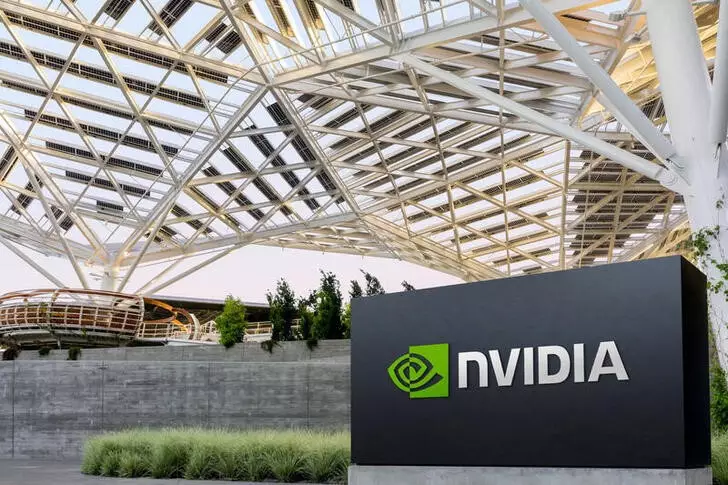In a move that underscores the escalating tech rivalry between China and the United States, the Chinese government has initiated an investigation into Nvidia, the prominent U.S. chip manufacturer. The inquiry, which centers around potential violations of China’s anti-monopoly laws, has raised eyebrows within the global tech community and signals a possible retaliatory measure against recent U.S. sanctions targeting the Chinese semiconductor industry. The complexities of this situation go beyond a corporate investigation; they highlight deep-seated geopolitical tensions as both nations jockey for technological supremacy.
The timing of this investigation cannot be overlooked. Just weeks prior, the U.S. imposed its most intense restrictions on the Chinese chip sector, including curbs on exports to 140 companies, thus amplifying existing fissions in the relationship between the two economic powerhouses. Adamantly defending national security interests, the U.S. has navigated an increasingly stringent regulatory landscape around semiconductor sales, aiming to limit China’s access to advanced technology, particularly in artificial intelligence (AI). This geopolitical stance drives multiple, complex unemployment scenarios affecting businesses reliant on cross-border trade.
China’s State Administration for Market Regulation (SAMR) has not disclosed specific allegations against Nvidia. However, it suggests potential infringements are not limited to anti-monopoly laws alone, indicating that Nvidia may have breached commitments made during its acquisition of Mellanox Technologies under conditions set forth in 2020. The existence of such stipulations illustrates that the Chinese government aims not only to scrutinize business conduct but also to uphold its regulatory authority in face of mounting pressures from the U.S.
This lack of clarity raises crucial questions about the motivations driving the investigation. With Nvidia’s significant footprint in China’s lucrative AI chip market—previously commanding over 90% market share—the probe may serve to challenge foreign dominance in critical technological sectors, especially as local competitors like Huawei emerge in the landscape.
Upon the announcement of the investigation, Nvidia’s shares fell by 2.5%, reflecting anxieties among investors regarding the company’s market positioning in China. An Nvidia spokesperson emphasized the company’s commitment to compliance and its wishes to maintain open lines of communication with regulators. However, analysts, including Bob O’Donnell from TECHnalysis Research, suggest that the flow-on effects of the investigation may be limited as Nvidia has already adapted by developing an array of modified chip versions in response to U.S. restrictions.
This sentiment raises broader implications: Nvidia’s involvement in protracted geopolitical turmoil could stagnate its growth, undermining its previously established market dominance. Even though the company made strategic adjustments to address U.S. export limitations, ongoing tensions continue to shape its operational latitude in China, concurrently challenging Nvidia as it seeks to optimize business strategies while navigating regulatory landscapes.
China’s latest move against Nvidia exemplifies the tangible risks foreign companies face when operating within shifting geopolitical frameworks. Companies like Nvidia must now prepare for extended volatility as they navigate both competitive pressures and regulatory vulnerabilities. As China’s domestic industry gains momentum and the competition from companies like Huawei firm up, Western tech firms risk losing significant market share if they cannot adapt swiftly enough.
The investigation also sheds light on the long-term sustainability of U.S. tech companies in China. With China’s actions demanding adherence to local regulatory standards, foreign firms must consider rethinking their operational frameworks, supply chain dependency, and market entry strategies. The ongoing inquiry has the potential to reshape the competitive landscape and could incentivize local partnerships within China as a hedge against regulatory risks.
As we gaze into the near future, the relationship between the U.S. and China will likely remain tumultuous with heightened distrust shaping technological transactions. With each retaliatory measure and regulatory leap, both countries square off in a high-stakes competition for the future of technology and innovation.
Nvidia’s experience provides valuable insights into navigating this intricate landscape. The outcome of the investigation remains uncertain, yet its implications ripple across the semiconductor industry and serve as a reminder of the fragility inherent in international business dealings amid geopolitical challenges. As borders become less distinct in terms of trade, technology, and regulation, stakeholders in both countries may need to recalibrate expectations while preparing for a landscape where rivalry and technological interdependence coexist.

